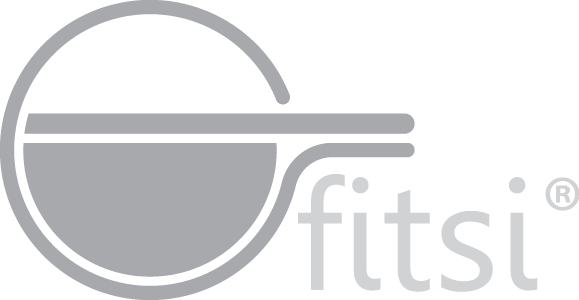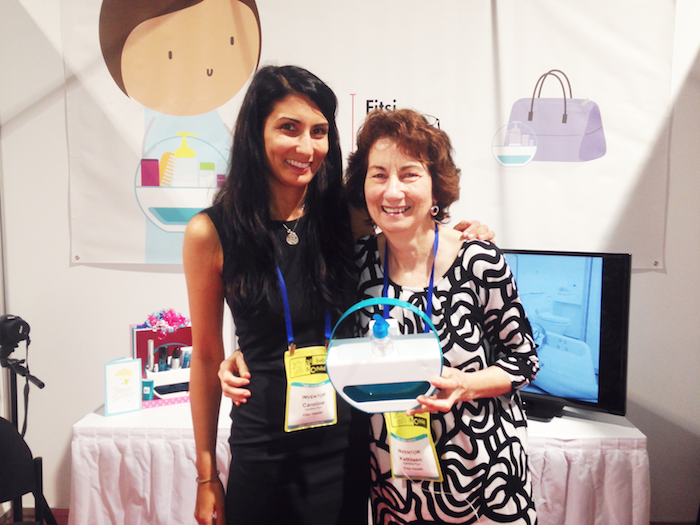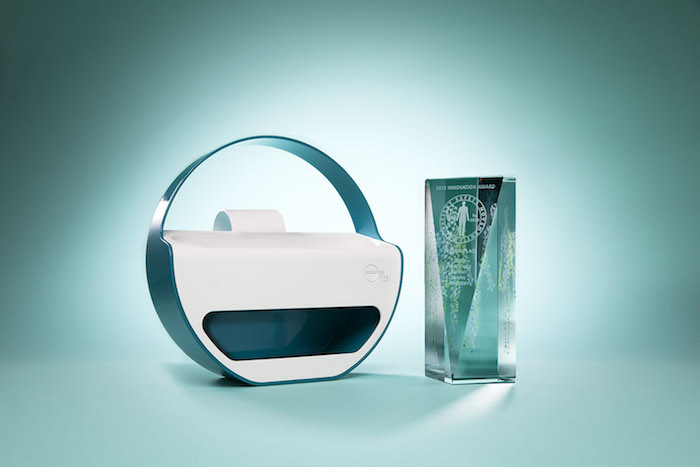Kathleen Puri had been a nurse for many years, but it wasn’t until she became a hospital patient that the issue of hospital patient hygiene began to truly bother her. She noticed that patients confined to a hospital bed had no way to conveniently and easily wash their hands — one of the easiest ways to prevent the almost 100,000 deaths (more than those caused by diabetes or breast and prostate cancer combined) attributed to infections acquired in hospitals annually.
Puri teamed up with management consultant and social impact advocate Caroline Mitchell to create Fitsi, an antimicrobial bedside caddy designed to improve hospital patient hygiene by providing a place for patients, even those with mobility challenges, to easily clean their hands. Fitsi is sold directly to hospitals to alleviate those infections and save part of the 10 percent of hospital operating budget allocated specifically to infection control.
Puri shares more about how a product as seemingly-simple as Fitsi can improve both the patient and hospital employee experience, how to design a patient-centric product, and how her startup has been fostered by the supportive entrepreneurial ecosystem of Chattanooga, TN.
Year/Date founded?
2013
Funding or bootstrapped? Bootstrapped
Elevator pitch?
How do you clean your hands if you are in a hospital bed? As a nurse I noticed that many patients did not perform hand hygiene because they lacked convenient access to hand sanitizer. They also did not have a convenient place to store personal items. This bothered me because I know the best way to prevent infections is hand hygiene. Then one day I became a patient. That’s when I decided to do something.
Determined to find a solution, I created a hospital bedside product, called Fitsi, that helps prevent infections, falls and the loss/damage of personal items such as glasses, mobile phones and hearing aids. This simple innovation not only empowers patients to take control of their health but also saves nurses and hospital staff valuable time and increases the overall quality of care.
What problem are you solving?
Fitsi Health is addressing interconnected healthcare problems such as:
- Hospital acquired infections: The CDC estimates that hospital acquired infections account for an estimated 1.7 million infections and 99,000 associated deaths each year. These are preventable. Hand hygiene is widely recognized as the most important means of preventing infection, yet hand sanitizers are often placed at the entrance of patient rooms. Fitsi places hand hygiene next to the patient, making it less awkward for patients to remind caregivers to perform hand hygiene and giving patients the ability to clean their hands without assistance.
- Storage of personal items: Personal items, such as glasses and mobile phones, are crucial to a patient’s comfort. These items, however, are often strewn across bedside tables or lost in the bedsheets, leaving them susceptible to loss and damage. Fitsi provides a convenient, dedicated storage location for these items.
- Workload of healthcare personnel: Providing patients with some independence helps decrease the workload of hospital personnel. By reducing the time spent looking for personal items and performing other basic tasks, Fitsi has been able to give nurses an average of five to eight minutes back per shift.
- Patient engagement: Giving patients this resource encourages health promotion activities.
Please describe the market/industry impact.
The impact of preventing even one hospital acquired infection means less suffering for the patient, less time hospitalized, less time lost from employment and more reimbursement to hospitals. A whopping 10 percent of hospital operating budgets is devoted to infection control efforts today. Reducing infections through better patient hand hygiene will help reduce these costs.
Another emerging threat is antibiotic resistance of bacteria. If infections can be prevented antibiotics are not needed. Patients expect to be safe when hospitalized. No one goes to the hospital to get sick.
Fitsi is an extremely cost effective solution. The cost of having a Fitsi on every bed in a 300-bed hospital is less than the cost of treating one patient with an infection acquired while hospitalized.
Revenue model?
Fitsi is primarily sold directly to hospitals. We also sell to consumers through our website and doctors’ offices.
How did you come up with this idea?
This idea was born of frustration with the lack of patient hand hygiene. For years, working as a nurse and educator, I was bothered by the fact that there was no way for patients to clean their hands on their own when confined to a hospital bed. Each year, more people die of hospital acquired infections than diabetes or breast and prostate cancer combined. And clean hands are the best way to prevent these infections. The fact that there was no easy way to keep patient hands clean seemed like a huge risk no one was addressing.
This frustration grew when I became a patient and saw things from the other side. Lying in a hospital bed I felt helpless – unable to reach her phone, glasses, and with no way to clean my hands.
I concluded that patients are simply too dependent on healthcare workers for help with these simple but critical tasks. Something needed to change. On the flip side, as a nurse, I knew all too well how incredibly busy everyone working in hospitals is. Creating more work for hospital staff wasn’t the solution. I wanted to find a way to improve the patient experience by empowering patients.
Who are your competitors and why do you stand out?
Our biggest competition is lack of awareness of the problem of patient hand hygiene. Most healthcare workers we talk with say patient hand hygiene is a problem that is so obvious it is not being seen. Similarly, for years the infection control industry has focused only on healthcare workers with scant to no attention given to patients.
Recent studies have shown patients clean their hands in less than 30 percent of the instances that they should and that as many as 39 percent of patients have antibiotic resistant bacteria on their hands within 48 hours of hospitalization. Even more alarming is that these patients are often silent carriers of these resistant bacteria, passing them on to other patients, caregivers, and visitors. These findings have the American Journal of Infection Control calling patients “the missing link in infection control efforts.” Fitsi is designed to fix this missing link.
The product stands out in the infection control space because it is the first patient-centric hand hygiene solution. Fitsi is part of NXT Health’s Patient Room of 2020 and has been recognized by the Nursing Institute for Healthcare Design, Infection Control Today and the Institute for Patient Centered Design. In 2015, Fitsi won an Innovation Award from the Patient Safety Movement at the World Patient Safety, Science, and Technology Summit.
What has been your biggest obstacle/challenge thus far?
Production has been our greatest challenge. Looking at every aspect of manufacturing, getting multiple quotes and having discussions with distributors is what has been consuming our time lately.
Another challenge that all new healthcare products face is having clinical data to demonstrate effectiveness. We are currently working with several organizations to pilot Fitsi and gather this critical data.
How does the southeast weave into your story?
The southeast, specifically Chattanooga, TN, is a very supportive startup community. We have benefited from working with wonderful organizations such as the Small Business Association, SCORE, BrightBridge Women’s Center, Co-Lab, One Million Cups Meetup group and a Mastermind group.
Workshops, meetings and networking have all been encouraging, educational and motivating. It is critical to be surrounded by helpful, creative people willing to give of their time and talent and Chattanooga has provided that for Fitsi Health.
What are your next steps?
Our next steps involve gathering data from clinical trials and making this available in our marketing material, exploring different distribution methods and increasing our social media presence.
Mary Stargel is a native born Texan who navigated the globe before landing in Chattanooga, TN. As Community Manager of Society of Work and Program Manager for the Edney Innovation Center, she is surrounded by thinkers, starters, and doers. Her favorite thing about Chattanooga is the community’s love for solving problems together.
Interview and Q&A by Mary Stargel, development by Holly Beilin. Photos via Fitsi Health.



